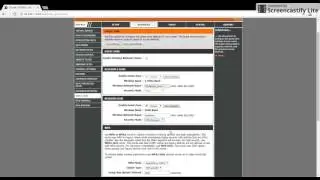Convert Web Page URL to PDF with PDF.co API in JavaScript (Node.js)
This video will demonstrate generating a PDF document from a web page URL using JavaScript (node.js) and PDF.co Web API.
👉PDF.co Sign-up: https://app.pdf.co/signup
👉Source Code: https://apidocs.pdf.co/24-pdf-from-ur...
👉https://pdf.co/blog/generate-pdf-from...
Useful Links:
🔎 PDF.co Web API for developers
https://pdf.co/rest-web-api
☁️PDF.co Integration with Zapier
https://pdf.co/zapier
♻️ API Documentation
https://apidocs.pdf.co/
✅PDF.co Plans
https://app.pdf.co/subscriptions
Converting a web page URL to PDF allows you to capture the content of a webpage and save it as a portable document format (PDF) file. This process is beneficial when you want to preserve a webpage's layout, formatting, and overall appearance for offline viewing, printing, or archiving purposes. By converting a web page to PDF, you can ensure that the content remains intact, including text, images, hyperlinks, and other elements.
With JavaScript (Node.js) and PDF.co Web API, you can easily convert a web page to PDF format. Simply send an HTTP POST request to the PDF.co Web API endpoint with the web page URL as a parameter. The API will retrieve the content from the specified web page, convert it to PDF format, and return the resulting PDF file as a response. You can then save the PDF file to your device or print it as needed. Using JavaScript (Node.js) and PDF.co Web API to convert a web page to PDF offers a fast and reliable way to capture and preserve online content for offline viewing, printing, or archiving purposes.
Upon receiving the request, the PDF.co Web API will proceed to retrieve the content from the specified web page. It will then initiate the conversion process, transforming the acquired content into a PDF format. The resulting PDF file will be sent back as a response from the API. At this point, you have the option to save the PDF file to your device or utilize it for printing purposes.
By utilizing JavaScript (Node.js) in combination with PDF.co Web API, you gain access to a swift and dependable solution for capturing and preserving online content. Whether you require offline access, physical copies, or archival purposes, this method offers a reliable means to convert web pages into PDF format while retaining their original visual qualities.
Overall, converting web page URLs to PDF offers a convenient way to capture and preserve online content in a format that is easy to share, view, and store. Whether you choose an online conversion tool, a browser extension, or a programming API, the process is simple and versatile, making it a valuable tool for personal, educational, and professional use.



















